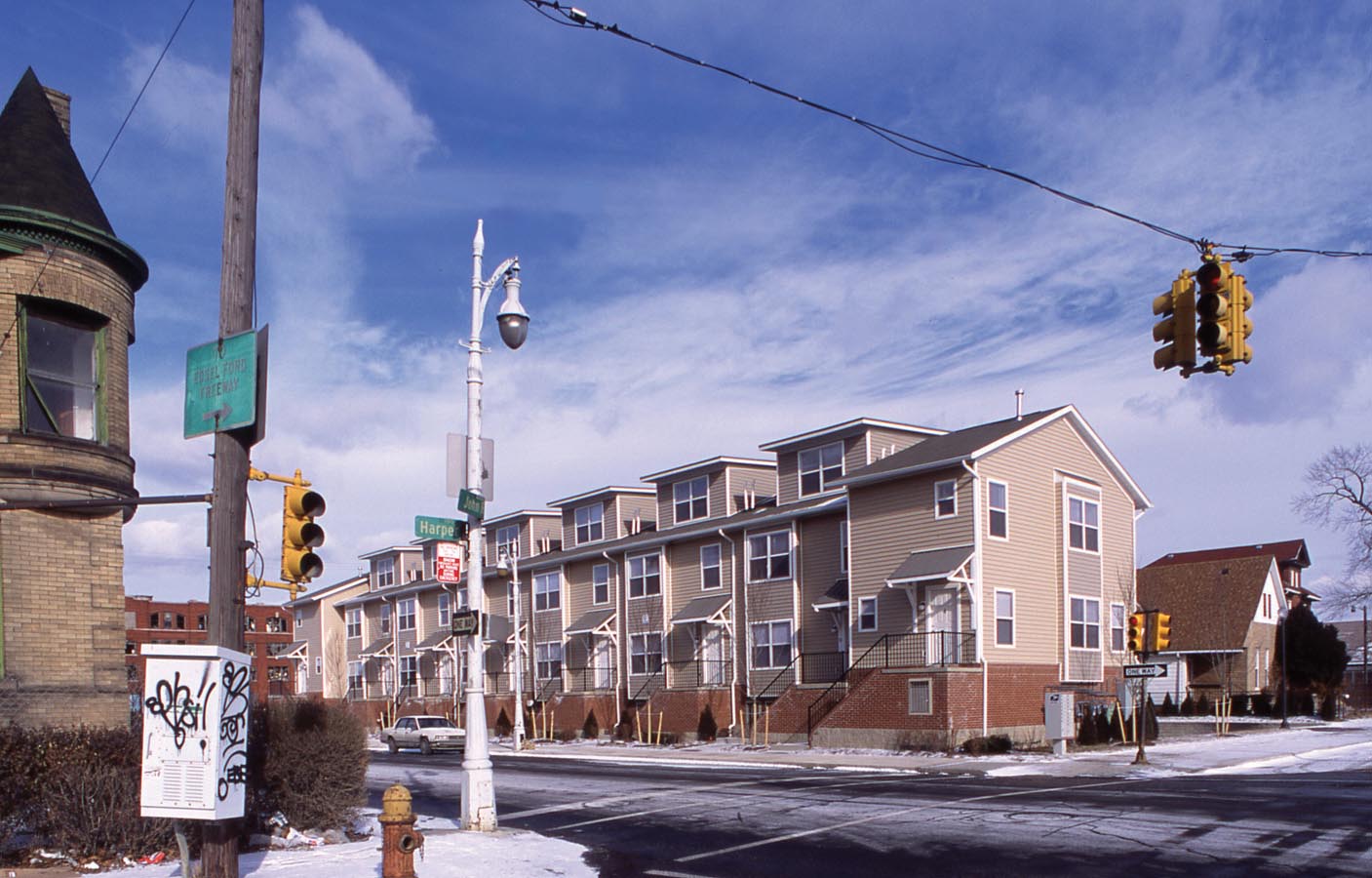
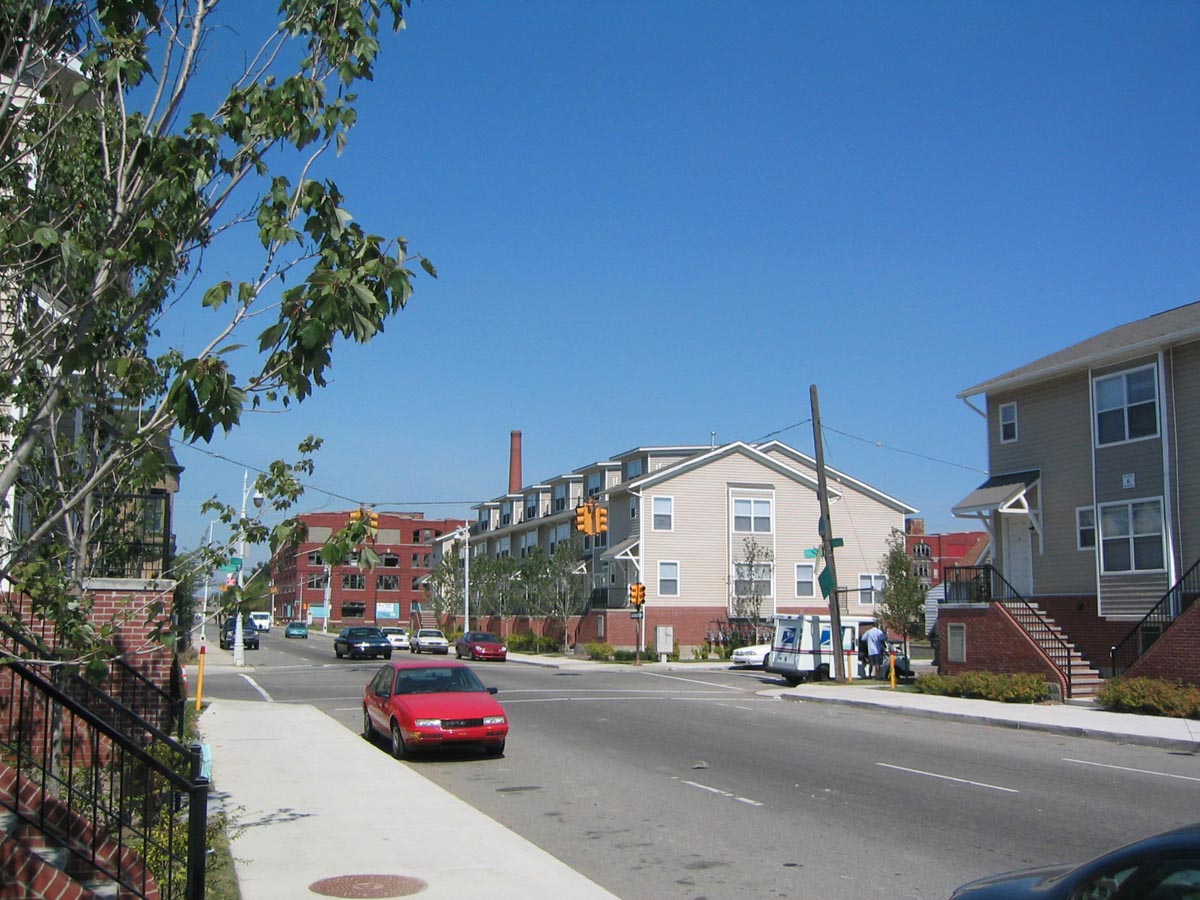
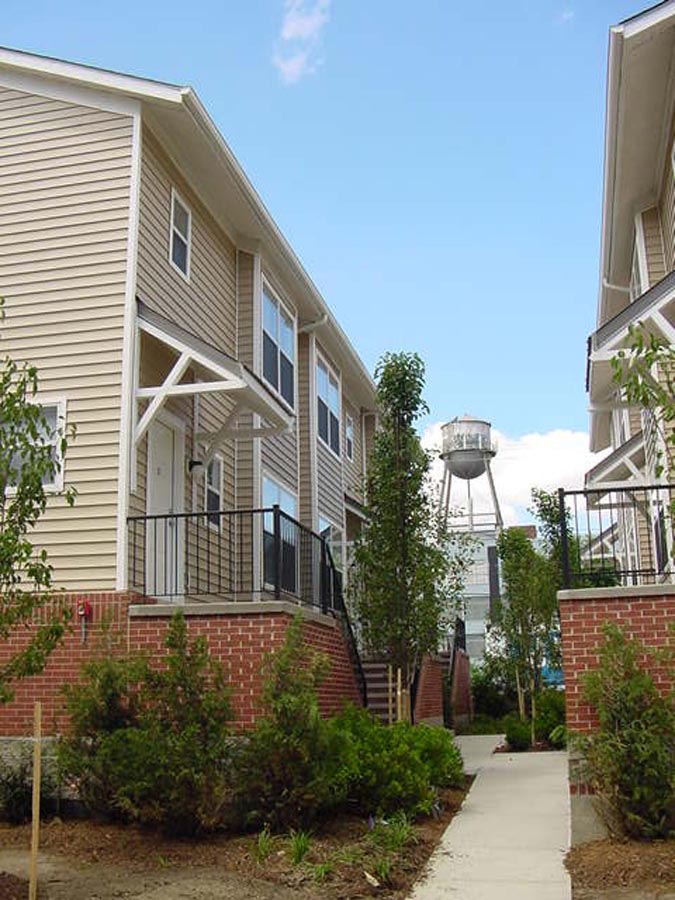
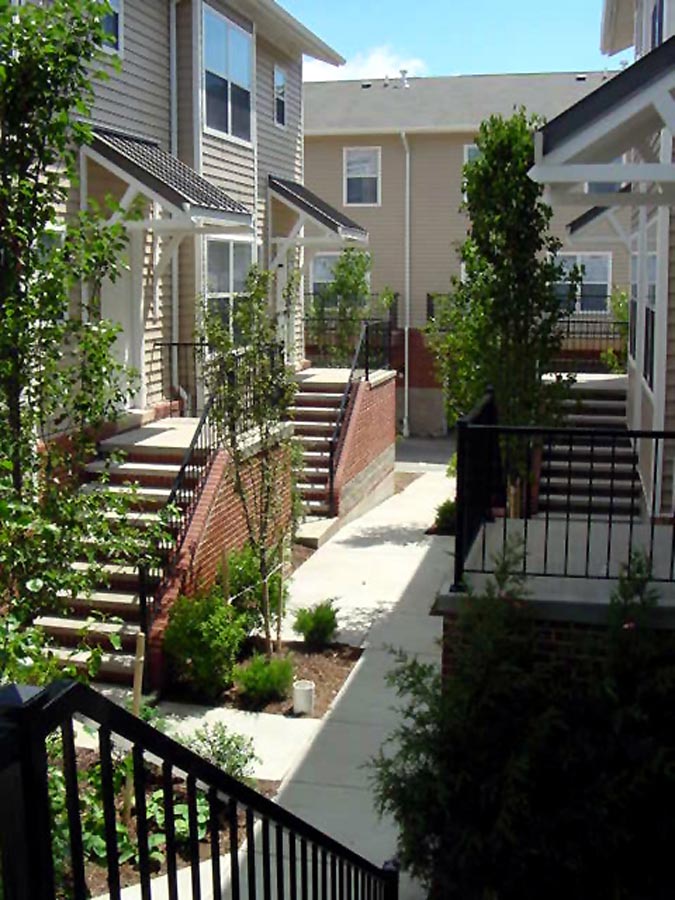
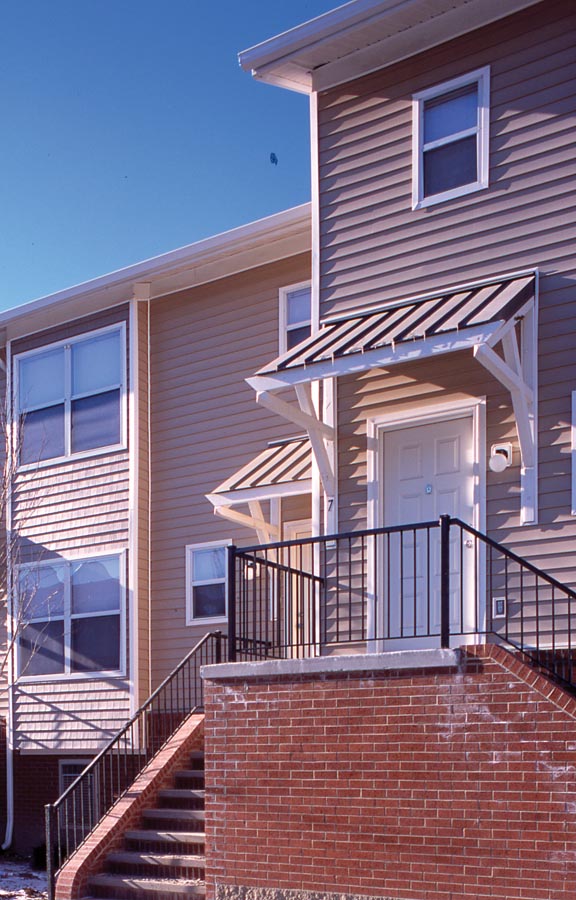
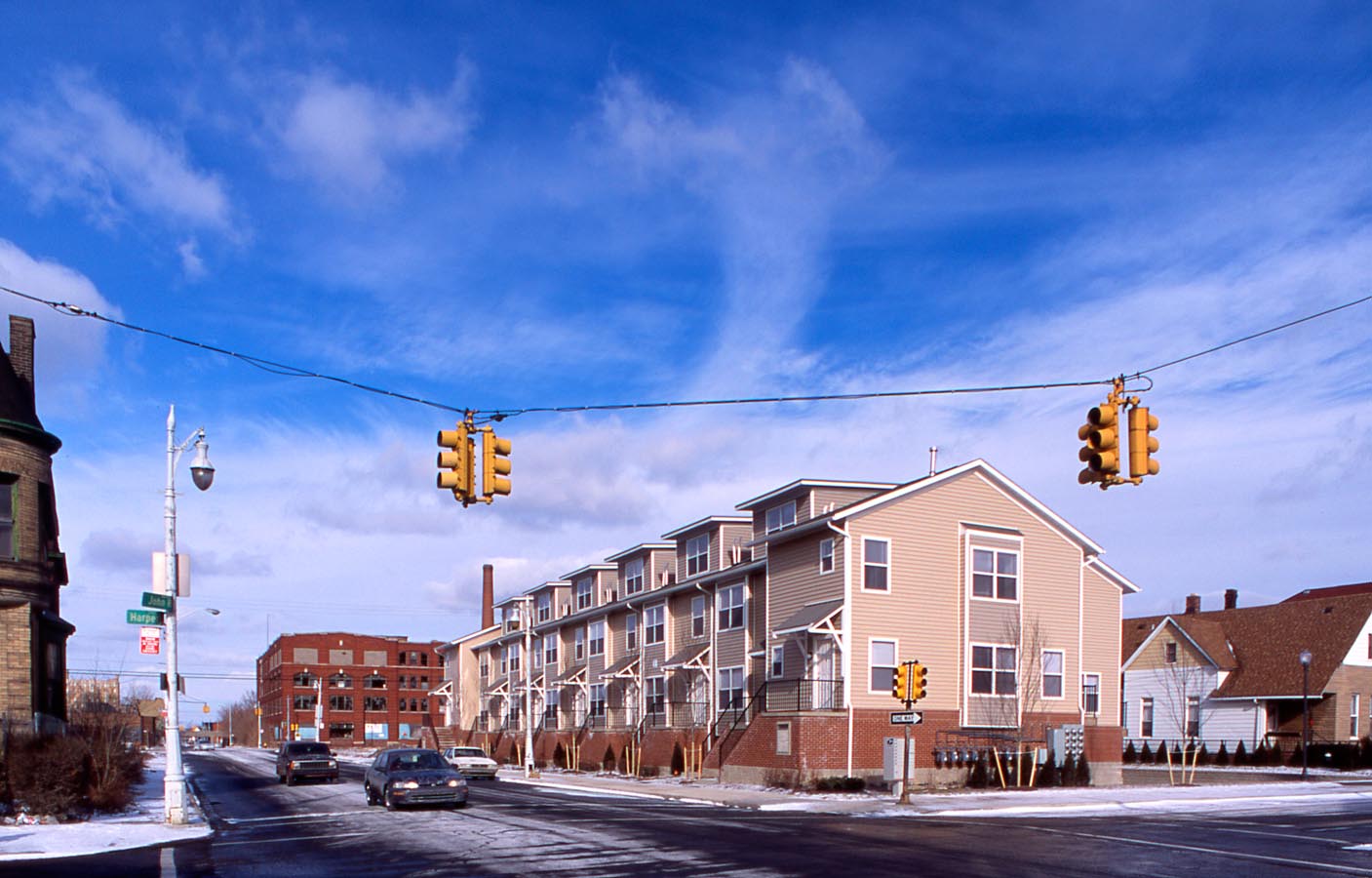
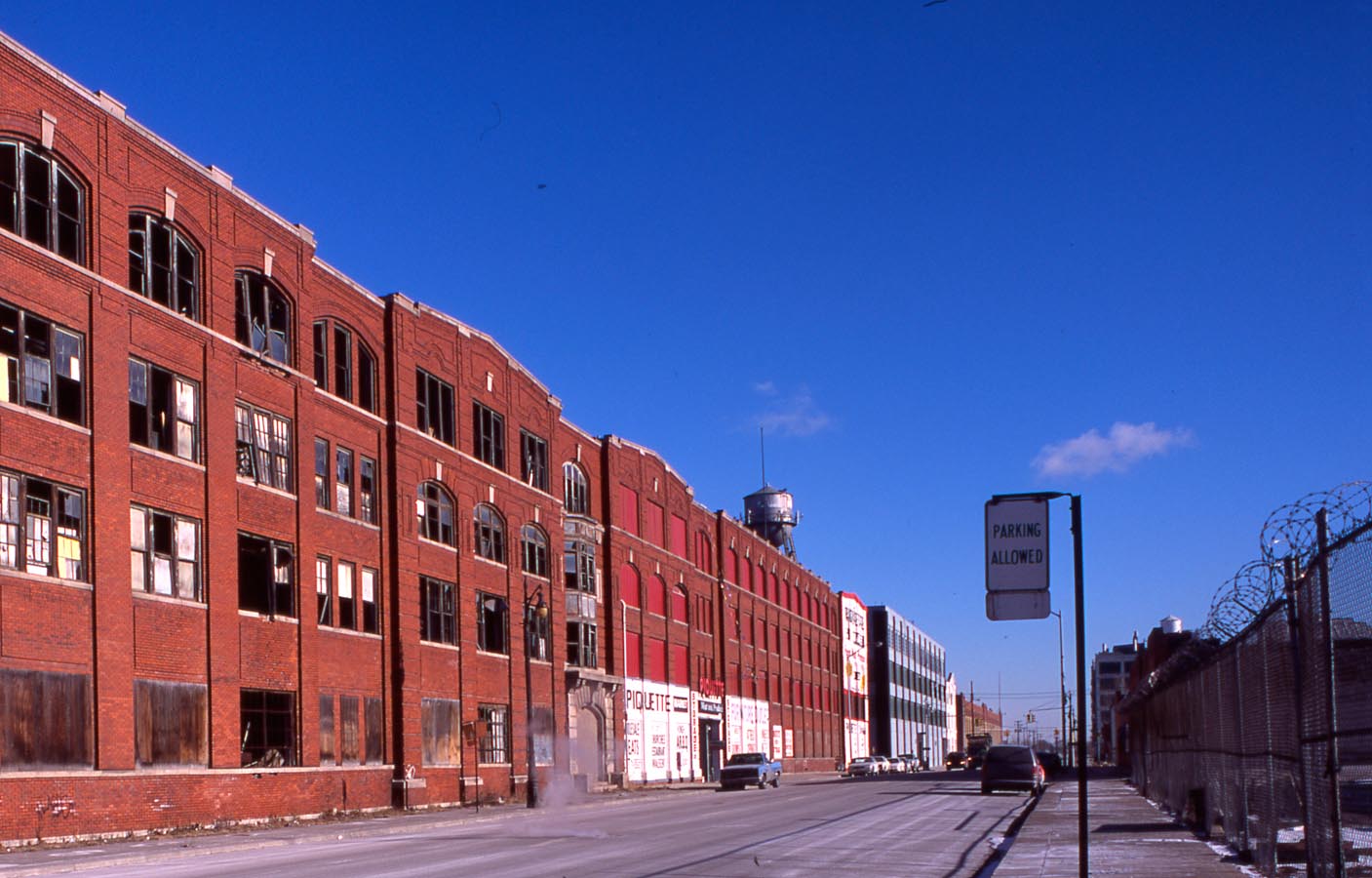
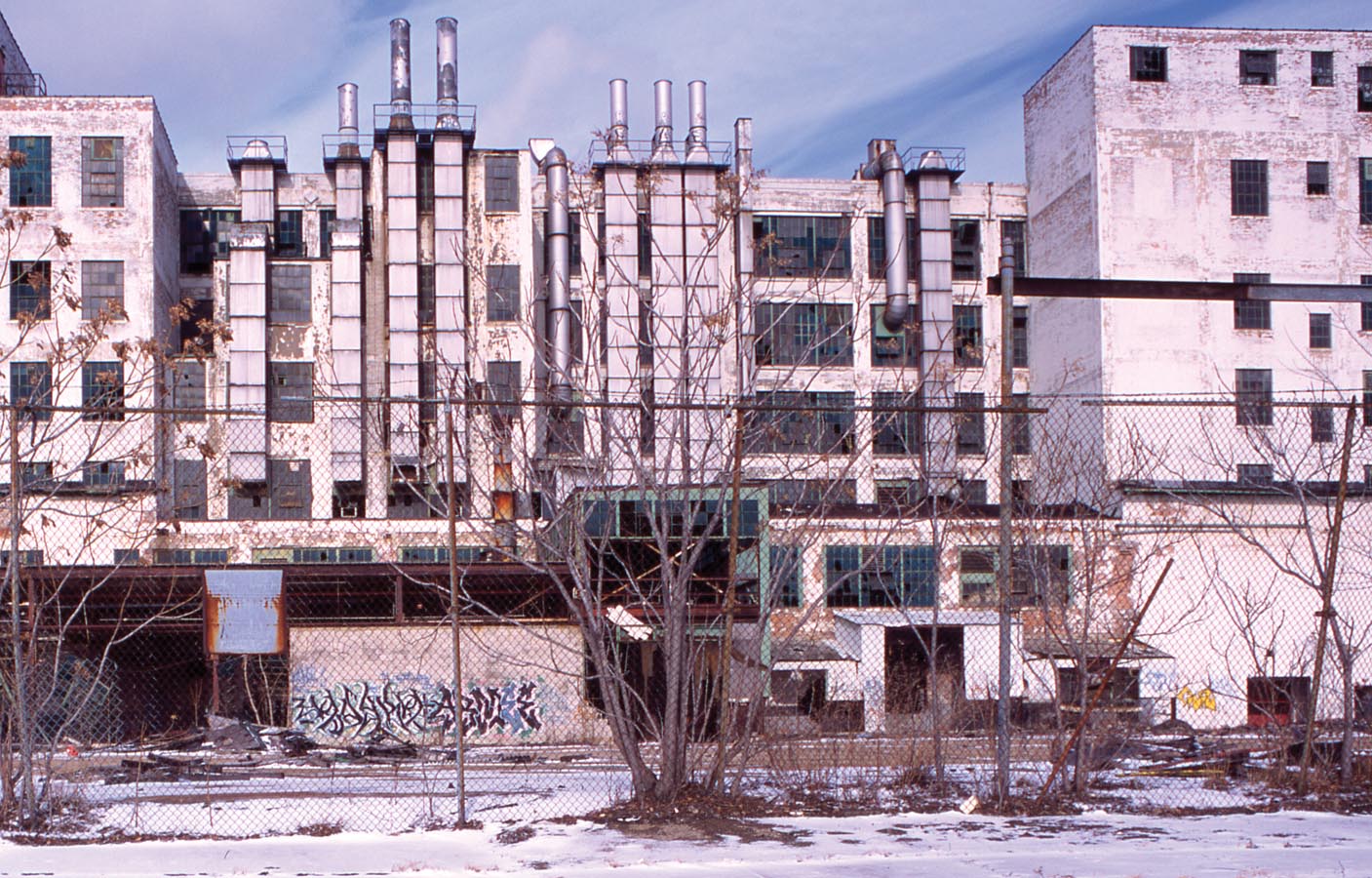
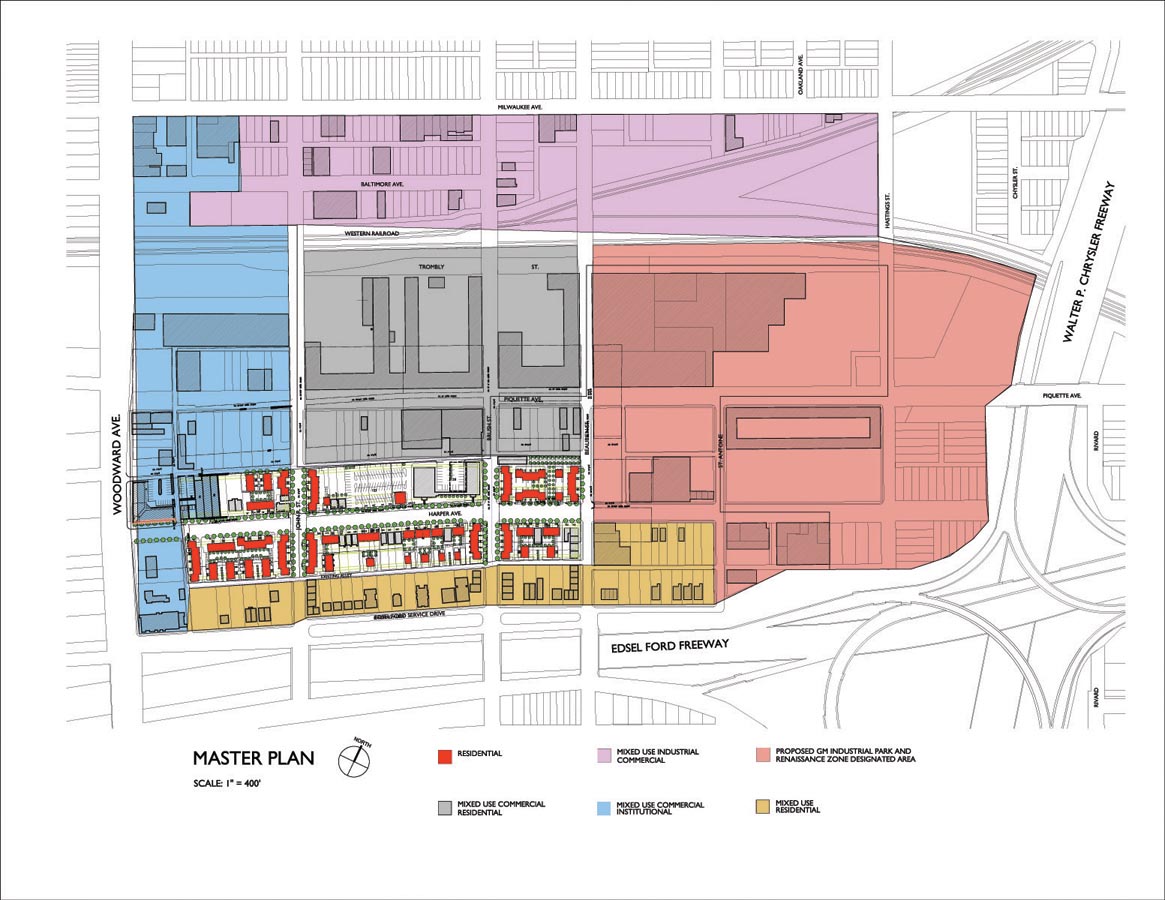
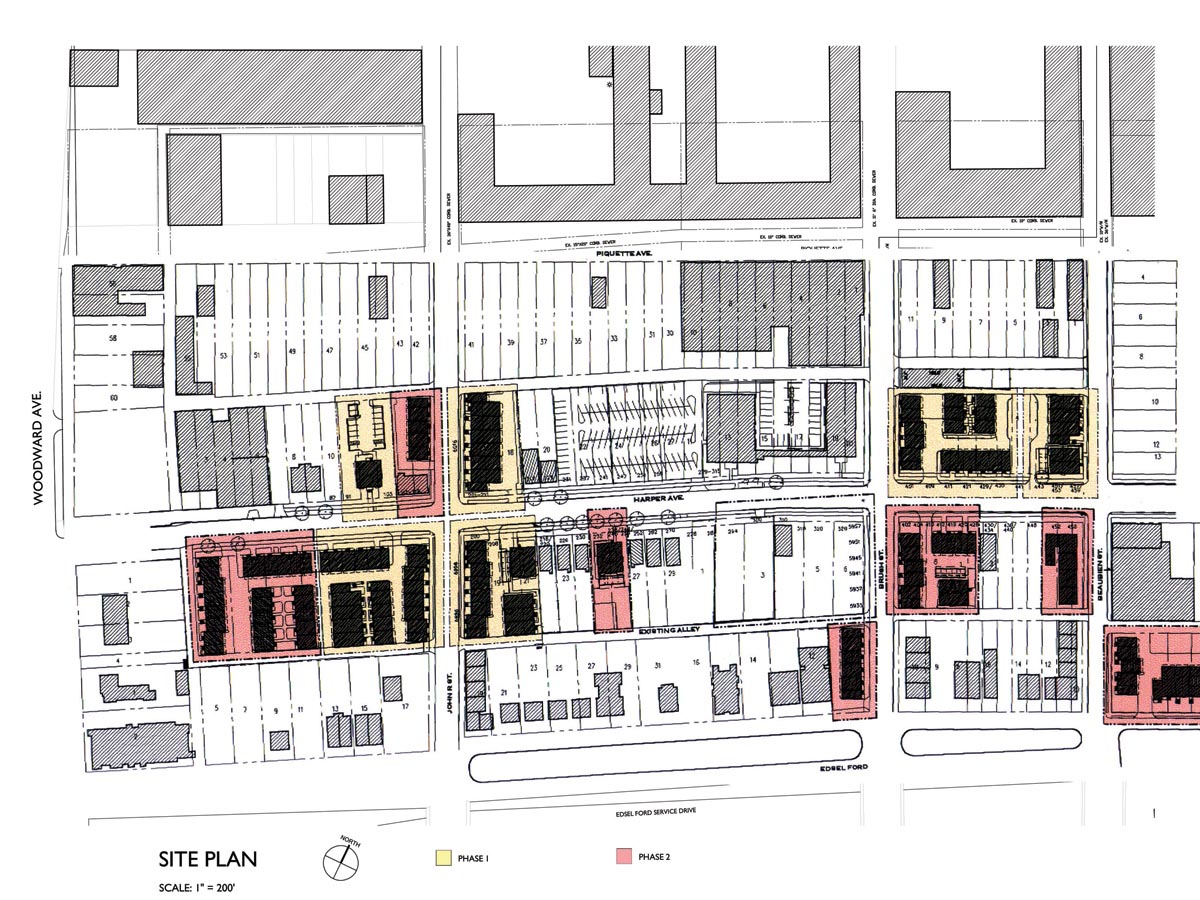
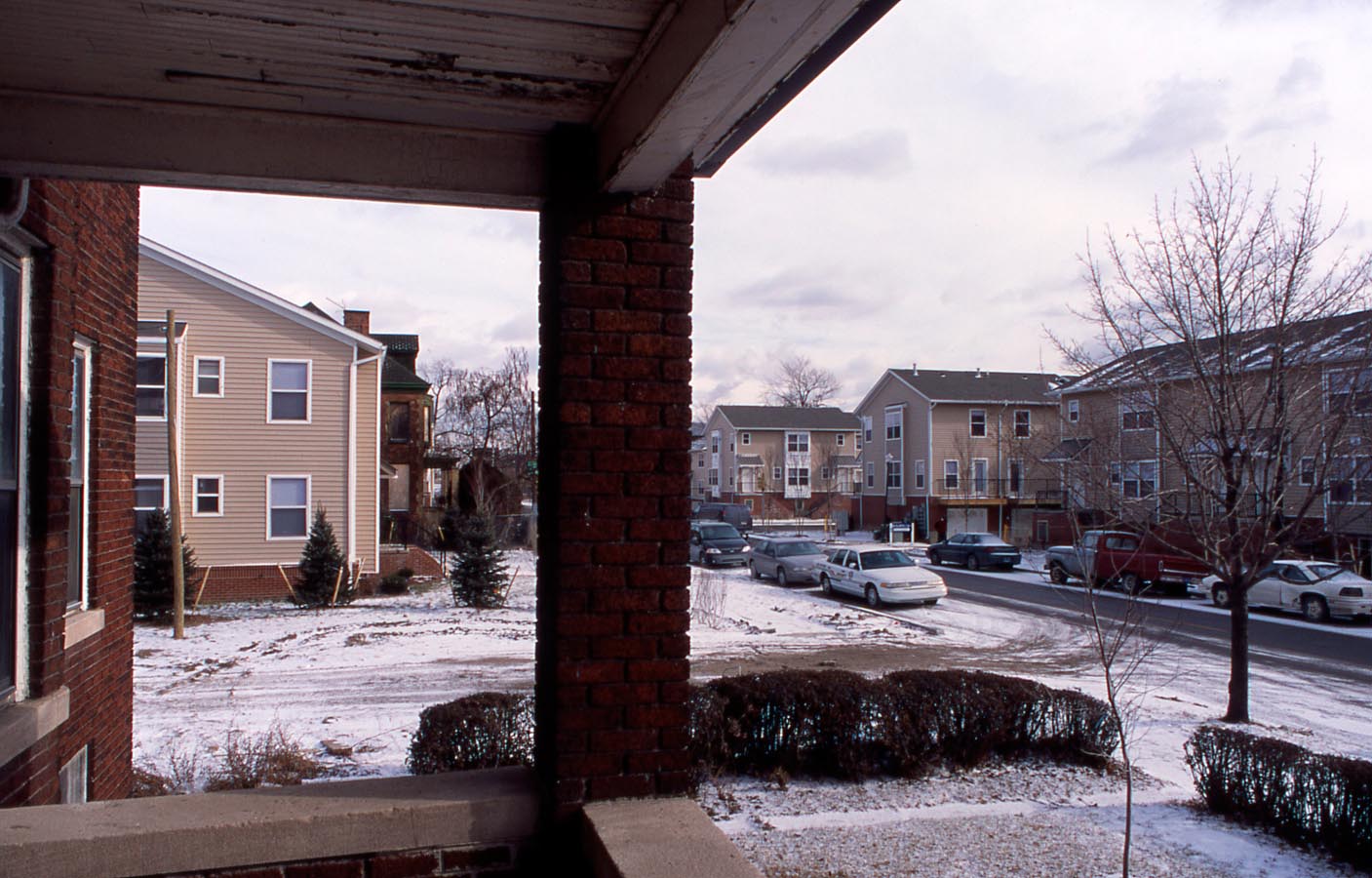
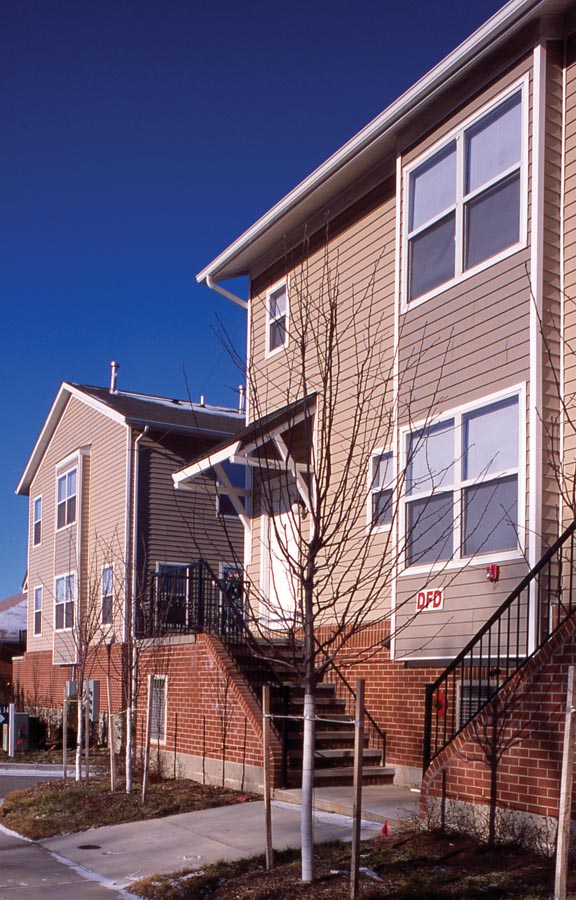

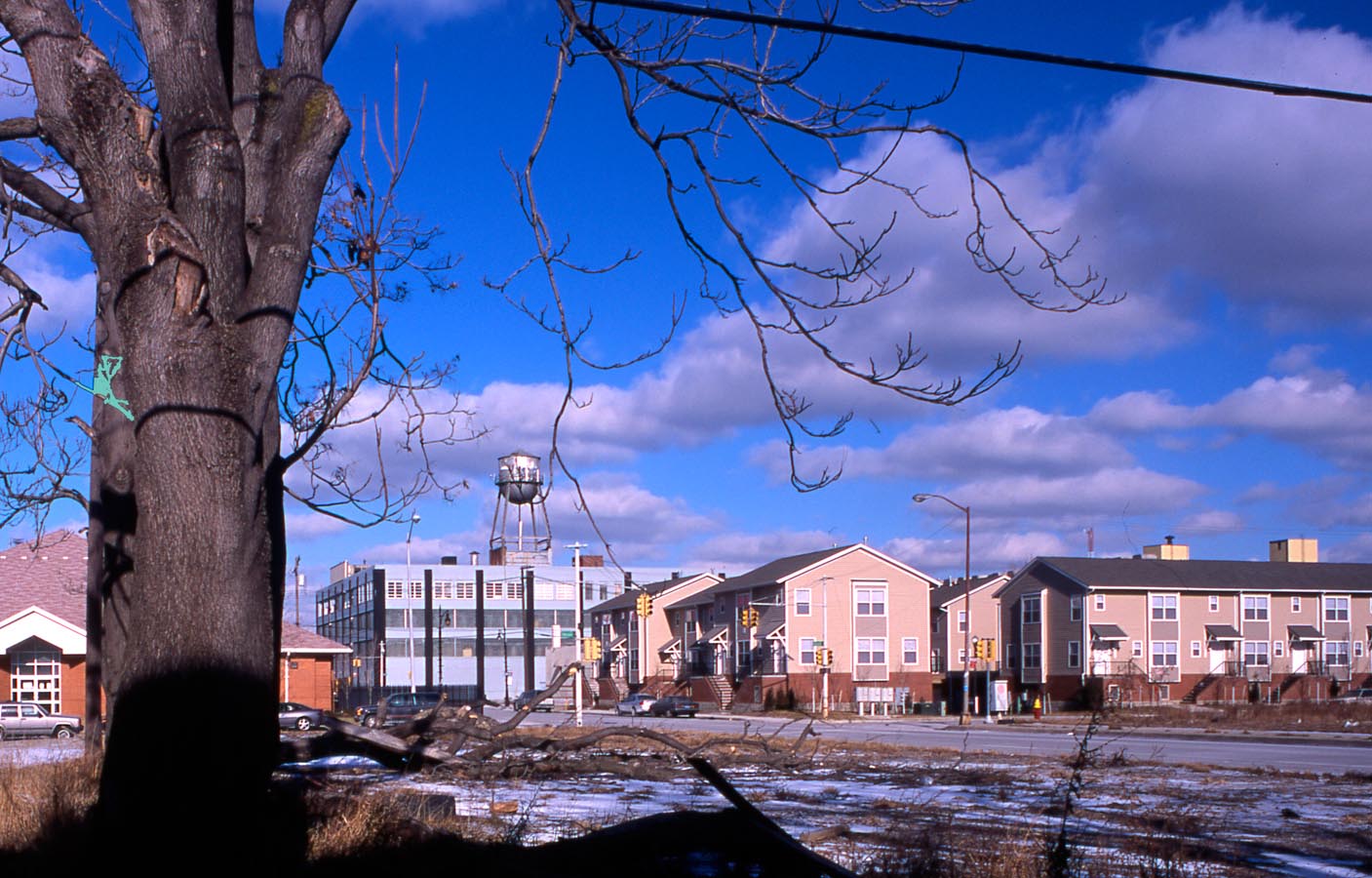
CLIENT: Genesis Villas
LOCATION: Detroit, MI
YEAR: 1996-2003
Genesis Villas at Medbury Park provides an innovative model of a low-income, subsidized-housing development in one of the country’s most economically devastated urban centers. With the 89-units of Phase One complete, the townhouse development has leveraged public interest and support for the preservation of a neglected historic district to create much needed multi-family residences that serve the specific needs of the existing community. In addition to public attention and investment, the Genesis Villas project has brought a new sense of community pride and empowerment to a once vibrant part of the city’s historic legacy.
The master plan for the Genesis Villas townhouses brought the neighborhood to public attention, allowing the community to regain its original mixed-use designation and to save the Ford Piquette plant and Studebaker factories from demolition. With this first preservation goal reached, the collaboration continued to create a residential development plan that would empower and enhance the community.
Radically deviating from Detroit’s previous development models, McIntosh Poris chose to weave into the neighborhood rather than to demolish the entire infrastructure in order to rebuild it. This respect for the past is evidenced throughout the Genesis Villas design, from the preservation of the street grid and adaptation of the townhouse typology to the material choices of cladding and brick. The Genesis Villas plan also preserves many existing, historic townhouses and works around the existing homes of current residents, creating an integrated patchwork of old and new.
Within this context, the design of the units directly responds to the specific needs of the community. A strong street edge, front porches, and large windows in first-floor living spaces activate the street as a part of the shared communal space, providing both safety and community life for residents and their families. The emphasis on enhanced shared space extends throughout the development.
2005 AIA DETROIT HONOR AWARD URBAN DESIGN